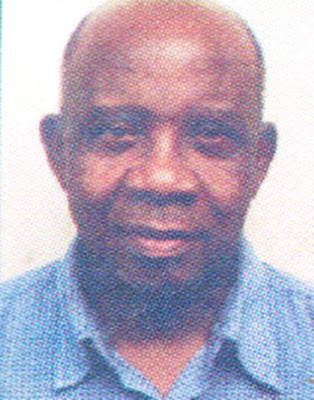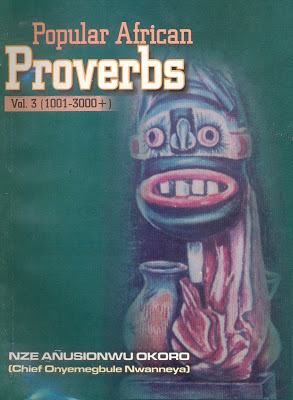Literature

 (c) Interviewed by SUMAILA UMAISHA.
(c) Interviewed by SUMAILA UMAISHA.
- 52 Glorious Years Of Nigerian Literature
As Nigeria marks its 52th Independence anniversary, SUMAILA UMAISHA highlights the literary landmarks Before 1960 The effective date of Nigerian?s attainment of independence from the British colonial rule is October 1st, 1960. But the same could...
- Honouring Jp Clark Is Celebrating Delta?s Achievements
Mr. Godini Gabriel Darah, campaign director of Governor Emmanuel Uduguaghan?s re-election project, represented the governor at the recent colloquium organised by the Association of Nigerian Authors to celebrate the 50 years of JP Clark?s writings, in...
- Osonye Tess Onwueme: Staging Women, Youth, Globalization, And Eco-literature
An international conference tagged "Osonye Tess Onwueme: Staging Women, Youth, Globalization, and Eco-literature" holds at the University of Abuja, Nigeria, from November 11 ? 14, 2009. The conference focuses centrally on Tess Onwueme as a playwright,...
- Vincent Chukwuemeka Ike - 'things Fall Apart Inspired Me' (interview)
VINCENT CHUKWUEMEKA IKE, one of the foremost Nigerian writers, has produced more novels than many of his contemporaries. He set out on his literary journey in 1965 with the publication of his novel, Toads for Supper and today he has over a dozen publications...
- Nigerian Literary History At A Glance
This piece is a brief highlight of the history of Nigerian Literature; a rush through the epochs. I wrote it to celebrate the country's monumental literary achievements over the years. In the beginning... In the beginning was oral literature, the...
Literature
Promoting African proverbs
Born at Ihube, Okigwe, Southeastern Nigeria in 1945, Anusionwu Okoro was educated at the Methodist College Uzuakoli, Institute of Management and Technology (IMT) Enugu, and the Textile Institute International, Manchester, England. He is an educationist, technologist and an all-round artist. He played Policarp Onwuchuruba on the original Masquerade (ECBS/TV, Enugu, 1973 - 76), with James Iroha as Gringory and Chika Okpala as Zebrudaya. He has many first class prizes for Fine Arts and Choral Music (including silver medal at the 1963 Eastern Regional Festival of Arts and Culture).
In recognition of his principled personality and active promotion of African culture through the arts for the past four decades, and his substantial contributions to human and community development, HRH Eze Obiete Ucheruaka, the Nnakeze 1 of Obinolu Autonomous Community in Abia State, Nigeria, conferred on him the chieftaincy title of Onyemegbule Nwanneya on 17 November 2001.
While in Britain he won the William Wilkinson Memorial Scholarship Award for the best Technology student of the year 1978. He retired as a Chartered Technologist (Polymer and Textiles) from the School of Engineering, Federal University of Technology, Owerri (FUTO), after 35 years of meritorious public service.
In this interview with SUMAILA UMAISHA, Okoro speaks about his book, Popular African Proverbs. Excerpts:
In recognition of his principled personality and active promotion of African culture through the arts for the past four decades, and his substantial contributions to human and community development, HRH Eze Obiete Ucheruaka, the Nnakeze 1 of Obinolu Autonomous Community in Abia State, Nigeria, conferred on him the chieftaincy title of Onyemegbule Nwanneya on 17 November 2001.
While in Britain he won the William Wilkinson Memorial Scholarship Award for the best Technology student of the year 1978. He retired as a Chartered Technologist (Polymer and Textiles) from the School of Engineering, Federal University of Technology, Owerri (FUTO), after 35 years of meritorious public service.
In this interview with SUMAILA UMAISHA, Okoro speaks about his book, Popular African Proverbs. Excerpts:
NNW: What informed the collection of African proverbs?
Anusionwu Okoro: I?ve been interested in reading African literature from my college days since 1960. So as I read along I take note of the wise sayings and proverbs. I always like to read Chinua Achebe, Chukuemeka Ike, Elechi Amadi, Festus Iyayi, Wole Soyinka, Odia Ofeimun and the rest of them who captured African wise sayings and proverbs in their novels and poems. So I decided to compile them.
How did you go about gathering the proverbs?
Since I?ve been taking notes of these proverbs all along from 1960 from every novel written by African author, I have recorded them in notebooks. I have three voluminous notebooks where I recorded them. So after some decades I have more than enough. Even after the publication in 2007, I have collected more and a new edition is in the pipeline.
What I see in the collection are more than what one could get from novels...
That is true. I get others from people at village meetings. I belong to many organsiations so as I attend the meetings I keep collecting wise sayings from the members.
Specifically, are they Igbo proverbs?
They are not Igbo proverbs only, I got some from Yoruba land, Akan tribe in Ghana, and so on.
How do you get the ones from foreign countries?
I get them from books.
What is the main objective of compiling the proverbs?
In fact, I have been doing the collection out of interest. And along the line, just before 2007, I discovered that the collections could be compiled into a book. Honestly, it is out of my interest for African proverbs. Another reason is to preserve the proverbs for future generations. I?m a professional teacher and I know that if these proverbs are published they will serve the interest of our young ones in primary, secondary schools and universities. Though it is mainly used as a reference book for universities. Since it was published many research undergraduates have been asking for the book. The wise sayings and proverbs in the book are in twenty-five chapters dealing with various human conditions. So it is easy for research scholars to choose from any topic they want to make up their thesis.
What is your next project on the subject?
I?m currently working on Igbo proverbs. Eventually, it will be more voluminous because since I got into it the expansion has been easy for me. So I?ve been advised by my people in America (by the way, my wife, and many of my grand children are in America and my daughter is in the United Kingdom) to write this so that the culture is preserved. So I?m writing the collection of Igbo proverbs for their interest, so that they don?t forget their roots. I?m writing them in Igbo but I?m also analysi1ng them in English, so that it would also serve the interest of non-Igbo speaking people. And I have given express permission to whoever wishes to translate any of the works into his local language.
Most of African writing these days sound foreign due to the absence of literary techniques such as the use of African proverbs. What is your advice to African writers in this regard?
My advice to them is that they should stick to their own tradition. They will sell more if they tick to their own tradition.
- 52 Glorious Years Of Nigerian Literature
As Nigeria marks its 52th Independence anniversary, SUMAILA UMAISHA highlights the literary landmarks Before 1960 The effective date of Nigerian?s attainment of independence from the British colonial rule is October 1st, 1960. But the same could...
- Honouring Jp Clark Is Celebrating Delta?s Achievements
Mr. Godini Gabriel Darah, campaign director of Governor Emmanuel Uduguaghan?s re-election project, represented the governor at the recent colloquium organised by the Association of Nigerian Authors to celebrate the 50 years of JP Clark?s writings, in...
- Osonye Tess Onwueme: Staging Women, Youth, Globalization, And Eco-literature
An international conference tagged "Osonye Tess Onwueme: Staging Women, Youth, Globalization, and Eco-literature" holds at the University of Abuja, Nigeria, from November 11 ? 14, 2009. The conference focuses centrally on Tess Onwueme as a playwright,...
- Vincent Chukwuemeka Ike - 'things Fall Apart Inspired Me' (interview)
VINCENT CHUKWUEMEKA IKE, one of the foremost Nigerian writers, has produced more novels than many of his contemporaries. He set out on his literary journey in 1965 with the publication of his novel, Toads for Supper and today he has over a dozen publications...
- Nigerian Literary History At A Glance
This piece is a brief highlight of the history of Nigerian Literature; a rush through the epochs. I wrote it to celebrate the country's monumental literary achievements over the years. In the beginning... In the beginning was oral literature, the...
